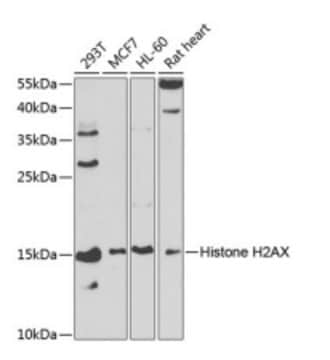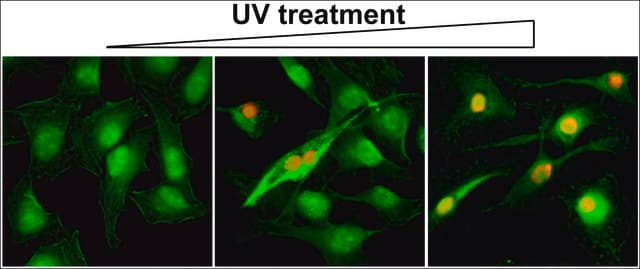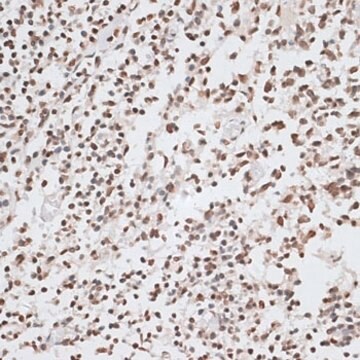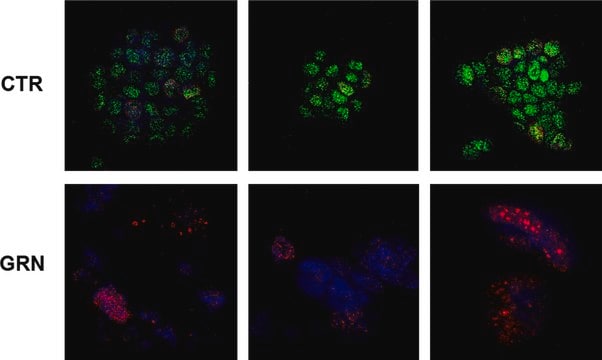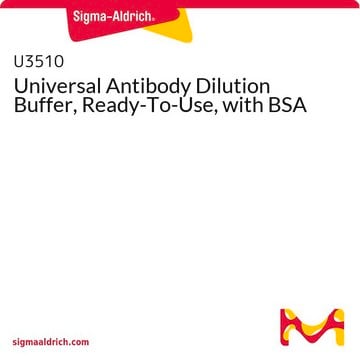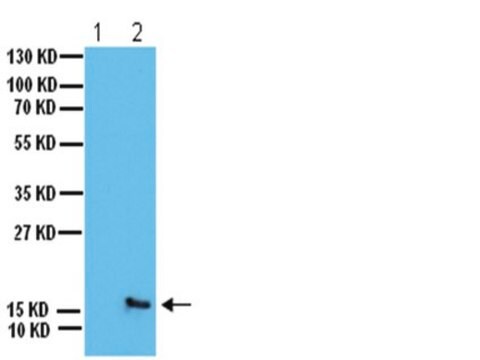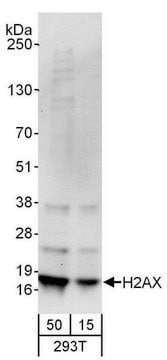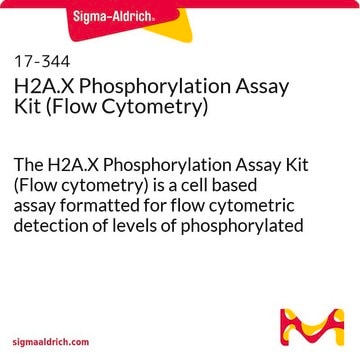H5912
Anti-phospho-Histone H2AX (pSer139) antibody produced in rabbit
IgG fraction of antiserum, buffered aqueous solution
Synonym(s):
H2Ax Antibody, H2Ax Antibody - Anti-phospho-Histone H2AX (pSer139) antibody produced in rabbit, Anti-H2AXS139p
About This Item
Recommended Products
biological source
rabbit
Quality Level
conjugate
unconjugated
antibody form
IgG fraction of antiserum
antibody product type
primary antibodies
clone
polyclonal
form
buffered aqueous solution
mol wt
antigen 15 kDa
species reactivity
mouse, human
technique(s)
microarray: suitable
western blot: 1:1,000 using whole cell extracts of HeLa (human epitheloid carcinoma) cells or NIH3T3 mouse fibroblast cells treated with staurosporine
UniProt accession no.
shipped in
dry ice
storage temp.
−20°C
target post-translational modification
phosphorylation (pSer139)
Gene Information
human ... H2AFX(3014)
mouse ... H2afx(15270)
General description
Immunogen
Application
Biochem/physiol Actions
Physical form
Disclaimer
Not finding the right product?
Try our Product Selector Tool.
recommended
Storage Class Code
10 - Combustible liquids
WGK
WGK 2
Flash Point(F)
Not applicable
Flash Point(C)
Not applicable
Certificates of Analysis (COA)
Search for Certificates of Analysis (COA) by entering the products Lot/Batch Number. Lot and Batch Numbers can be found on a product’s label following the words ‘Lot’ or ‘Batch’.
Already Own This Product?
Find documentation for the products that you have recently purchased in the Document Library.
Customers Also Viewed
Our team of scientists has experience in all areas of research including Life Science, Material Science, Chemical Synthesis, Chromatography, Analytical and many others.
Contact Technical Service
